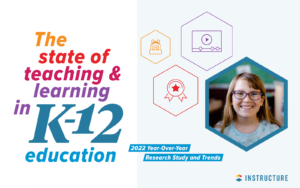Testing: Why We Need More of It. Lots More.

I worry about testing in the way I worry about alcohol abuse. On a societal scale, addiction is a tragic waste of human potential but in the privacy of my own home a glass of Tempranillo before dinner is at worst relatively harmless. Similarly, on a national scale student testing is a complex issue bound up in a Gordian knot of interrelated concerns from equity to test anxiety to teacher accountability to the appropriateness of assessing against standards that cross state lines, while in the haven of pursuing academics in my home it is not merely benign but essential – it is feedback.
As a math mom I’ve been asking (and asking and asking for the past decade) “ How do I know whether my math kid really understands the math?” For that matter, how do I know whether I understand it myself? Or if we are both merely engaging in the equivalent of “just invert and multiply” to get correct answers without much depth. What I’ve been asking for are tests.
Many different kinds of tests, in fact. Some of these tests are simply what we call worksheets. Timed worksheets let me know whether my kids have reached the levels of fluency and automaticity they need with the times table, dividing mixed numbers, or solving simple equations to be able to focus all their attention on solving problems that use such skills. And sometimes the humble worksheet is not just a test, but also a learning experience: what if we go straight from using a worksheet on adding fractions to one on adding mixed numbers with no “instruction”?
That first mixed number problem is going to be a real challenge – my child has never seen anything like that before. It takes time to think about how 2 1/3 can be added to 1 ¾. It doesn’t look exactly like fractions. You can’t just convert to a common denominator by rote…it doesn’t work. If it takes five minutes or five hours over several days to figure it out the end result is the same: deeper understanding of numbers and fractions and addition. The second problem will go faster than the first. The tenth will be fairly automatic. Soon we are doing worksheets for automaticity rather than for understanding. The very thing that often shuts down creativity, deeper learning, and curiosity is transformed in the sanctuary and privacy of my home into an inquiry-based lesson with embedded assessment. #Assessthat!
Worksheets are available online for free. This gives me, as a parent, tremendous power. By looking at what my kids need to be able to do, I can use the assessment to figure out “are we there yet?” The Internet will keep giving me free worksheets until I don’t need them any more.
Then there is a second level of testing. I want to know whether my kids are learning what they need to in order to prepare for college. Fortunately, there are tests that are used for college entrance such as the ACT and SAT and the subject SAT’s. These tests also give families like mine a great deal of power and freedom. As with worksheets, picking up an SAT test to play around with, especially without prior instruction, allows us to figure out how to do the work that is assessed for college entrance, what skills my kids need to develop to get into college, and to practice those skills until they have reached sufficient mastery to score well. The freedom we gain is that we can be extremely targeted and efficient in focusing on what my kids don’t yet know how to do, spending no time at all on the things they have already mastered. I am often surprised by the results – somehow life has given them deep understanding in areas I didn’t think they had been exposed to, sometimes they are missing one crucial understanding that keeps them from making sense of a whole area of study. Feedback gives us real power.
Unfortunately, sample tests are limited and expensive. They are precious resources that musn’t be used up. If we buy the College Board SAT prep book, that gives us only 10 SAT tests for the year, and there is no grading for the essay part of the test. Those of us who are privileged can purchase sample tests for this year and previous years. We can hire tutors to give feedback and score essay tests. We can afford to squander sample tests on goofing off with kids who are 10 or even 7 years old. We can, to some extent, experience the freedom and power of the worksheet with higher level, more challenging assessment.
Why aren’t college entrance assessment “worksheet equivalents” available as free and infinite Internet resources to everyone? Just as a start? What about essay-grading algorithms? Even if they are less than perfect, what an improvement over the nothing we have today. Plus they are infinitely scalable…
Then there are the elusive tests for understanding. The first time my son completed an on-line algebra course, I had a nagging suspicion that even though he could pass the tests, he didn’t have a deep understanding. It wasn’t until he took math from Art of Problem Solving that I saw real evidence of understanding in the form of applying prior knowledge to new problems. What does this evidence look like in other fields? Why aren’t there great problems out there available for free to all kids and parents?
One reason is that societal Gordian knot of issues around testing. What is beneficial in my home becomes fraught on a national scale. The AoPS problems are limited in number but extremely valuable as learning and assessment when used within a pedagogy that asks deep questions first and makes connections through real work. On a national scale, however, tests are used for so much more than feedback and the stakes are so high that words like “cheating” begin to have more meaning and power than words like “learning”. If AoPS were recognized nationally as a mechanism for being able to get a good grip on student understanding, the limited problem set with solutions would quickly be published, memorized, and rendered useless as a tool for learning. This is what I would call “testing abuse”.
Testing abuse is a systemic phenomenon resulting primarily from learning environments that incentivize cheating by creating scarcity in opportunities for students to demonstrate mastery and assigning disproportionate consequences to the outcomes of the few opportunities that exist – for every member of the system: students, parents, teachers, principals, district staff, curriculum and assessment publishers, policy makers, and homeowners.
Perhaps the antidote would be abundance. Lots of tests, from simple worksheets to thoughtfully designed problems to new innovations in immersive, situated assessment. There is so much innovation that could flourish in an environment of abundance, but it could start so simply…with worksheets and college exam questions, and final exam questions, and really great challenging problems made available for free, in abundance, online for students, parents and teachers without the crippling expectations of high-stakes testing.
So, let’s stop the cycle of testing abuse and question environments where cheating is even a thing. Let’s give testing back the power to enrich and improve learning. And if the role if high-stakes testing is to ensure equity, let’s focus on making the tests equitable. Or are we too addicted to a simplistic view of tests, to causation/correlation fallacies, and to outdated metaphors of school to make abundant access to tests available to all students, parents, and teachers?







Tom Vander Ark
Thanks Marie. I'm glad there is more assessment (and continuous feedback) built into more learning experiences and that it's moving into the background rather than being viewed solely an separate (often artificial) end-of-learning check for understanding.
Marie Bjerede
@Tom, I especially like ST math ( http://web.stmath.com/ ) as an example of this. Where assessment is a side effect of learning and feels like the "hard fun" of serious play.
Gavin
"Why aren’t college entrance assessment “worksheet equivalents” available as free and infinite Internet resources to everyone? Just as a start?"
As someone who works in a company that focuses on educational assessment, the test questions are the most expensive part for any state assessment contract. Making sure that the writers of the test questions get paid would be the tough part but I'm sure some smart person could find a way to make that happen.
Kristin Peri
Thanks Marie
I agree with your take that reducing the stakes and increasing the frequency and availability of assessment is a good thing. I still find that using the word "testing" vs. "assessment" pushes a button for me. As you point out, for many subjects competency cannot be demonstrated in a manner that can be evaluated without engaging someone who has a significant level of expertise in that subject: Assessing a student's use of primary and secondary source documents in supporting a thesis; designing, executing and drawing conclusions for an experiment; creating and or performing a piece of art, writing "elegant" code. Providing meaningful feedback on a learner's progress toward mastery of many, if not all, higher order skills requires expert involvement--as in your ability to assess your son's understanding of algebra.
Unfortunately, the cost and the availability of these types of assessments will continue to be limiting factors and I do not see how that will change significantly in the foreseeable future. At present, as class sizes continue to balloon, the number of meaningful assessments that can realistically be done reduces almost inversely proportionally because of the overload of the "experts," i.e. teachers.
Marie Bjerede
@Kristin, sadly you are right. We are not at a place where we can measure what matters a lot of the time and that has important implications. At the same time I am optimistic that we can do better (and technology can help) and as assessment evolves, I'm willing to take advantage of anything that gives me more data and feedback today, even though a heavy helping of judgment needs to go alongside it to make it really useful.